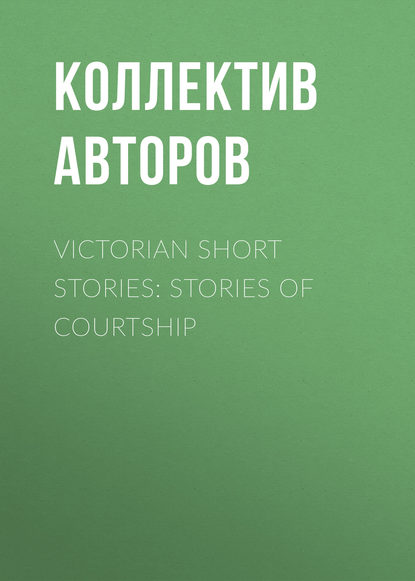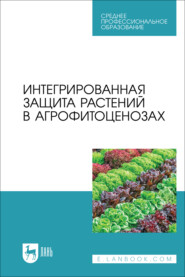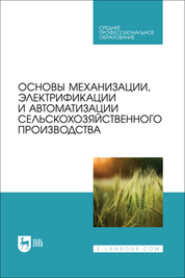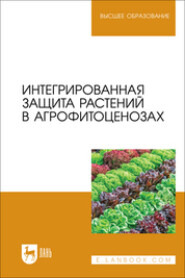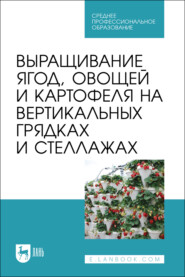По всем вопросам обращайтесь на: info@litportal.ru
(©) 2003-2024.
✖
Victorian Short Stories: Stories of Courtship
Настройки чтения
Размер шрифта
Высота строк
Поля
Anthony looked up at her as she spoke. She wore a straw hat, trimmed with crimson velvet, and a black, fur-edged cape, that seemed to set off mightily the fine whiteness of her neck. Her large, dark eyes were fixed upon him. He shifted his feet uneasily, and dropped his glance.
She linked her uncle's arm in hers, and the three moved slowly forward. Old Mr. Blencarn walked with difficulty, pausing at intervals for breath. Anthony, his eyes bent on the ground, sauntered beside him, clumsily kicking at the cobbles that lay in his path.
When they reached the vicarage gate, the old man asked him to come inside.
'Not jest now, thank ye, Mr. Blencarn. I've that lot o' lambs t' see to before dinner. It's a grand marnin', this,' he added, inconsequently.
'Uncle's bought a nice lot o' Leghorns, Tuesday,' Rosa remarked. Anthony met her gaze; there was a grave, subdued expression on her face this morning, that made her look more of a woman, less of a girl.
'Ay, do ye show him the birds, Rosa. I'd be glad to have his opinion on 'em.'
The old man turned to hobble into the house, and Rosa, as she supported his arm, called back over her shoulder:
'I'll not be a minute, Mr. Garstin.'
Anthony strolled round to the yard behind the house, and waited, watching a flock of glossy-white poultry that strutted, perkily pecking, over the grass-grown cobbles.
'Ay, Miss Rosa, they're a bonny lot,' he remarked, as the girl joined him.
'Are they not?' she rejoined, scattering a handful of corn before her.
The birds scuttled across the yard with greedy, outstretched necks. The two stood, side by side, gazing at them.
'What did he give for 'em?' Anthony asked.
'Fifty-five shillings.'
'Ay,' he assented, nodding absently.
'Was Dr. Sanderson na seein' o' yer father yesterday?' he asked, after a moment.
'He came in t' forenoon. He said he was jest na worse.'
'Ye knaw, Miss Rosa, as I'm still thinkin' on ye,' he began abruptly, without looking up.
'I reckon it ain't much use,' she answered shortly, scattering another handful of corn towards the birds. 'I reckon I'll never marry. I'm jest weary o' bein' courted—'
'I would na weary ye wi' courtin',' he interrupted.
She laughed noisily.
'Ye are a queer customer, an' na mistake.'
'I'm a match for Luke Stock anyway,' he continued fiercely. 'Ye think nought o' taking oop wi' him—about as ranty, wild a young feller as ever stepped.'
The girl reddened, and bit her lip.
'I don't know what you mean, Mr. Garstin. It seems to me ye're might hasty in jumpin' t' conclusions.'
'Mabbe I kin see a thing or two,' he retorted doggedly.
'Luke Stock's gone to London, anyway.'
'Ay, an' a powerful good job too, in t' opinion o' some folks.'
'Ye're jest jealous,' she exclaimed, with a forced titter. 'Ye're jest jealous o' Luke Stock.'
'Nay, but ye need na fill yer head wi' that nonsense. I'm too deep set on ye t' feel jealousy,' he answered, gravely.
The smile faded from her face, as she murmured:
'I canna mak ye out, Mr. Garstin.'
'Nay, that ye canna. An' I suppose it's natural, considerin' ye're little more than a child, an' I'm a'most old enough to be yer father,' he retorted, with blunt bitterness.
'But ye know yer mother's took that dislike t' me. She'd never abide the sight o' me at Hootsey.'
He remained silent a moment, moodily reflecting.
'She'd jest ha't' git ower it. I see nought in that objection,' he declared.
'Nay, Mr. Garstin, it canna be. Indeed it canna be at all. Ye'd best jest put it right from yer mind, once and for all.'
'I'd jest best put it off my mind, had I? Ye talk like a child!' he burst out scornfully. 'I intend ye t' coom t' love me, an' I will na tak ye till ye do. I'll jest go on waitin' for ye, an', mark my words, my day 'ull coom at last.'
He spoke loudly, in a slow, stubborn voice, and stepped suddenly towards her. With a faint, frightened cry she shrank back into the doorway of the hen-house.
'Ye talk like a prophet. Ye sort o' skeer me.'
He laughed grimly, and paused, reflectively scanning her face. He seemed about to continue in the same strain; but, instead, turned abruptly on his heel, and strode away through the garden gate.
IV
For three hundred years there had been a Garstin at Hootsey: generation after generation had tramped the grey stretch of upland, in the spring-time scattering their flocks over the fell-sides, and, at the 'back-end', on dark, winter afternoons, driving them home again, down the broad bridle-path that led over the 'raise'. They had been a race of few words, 'keeping themselves to themselves', as the phrase goes; beholden to no man, filled with a dogged, churlish pride—an upright, old-fashioned race, stubborn, long-lived, rude in speech, slow of resolve.
Anthony had never seen his father, who had died one night, upon the fell-top, he and his shepherd, engulfed in the great snowstorm of 1849. Folks had said that he was the only Garstin who had failed to make old man's bones.
After his death, Jake Atkinson, from Ribblehead in Yorkshire, had come to live at Hootsey. Jake was a fine farmer, a canny bargainer, and very handy among the sheep, till he took to drink, and roystering every week with the town wenches up at Carlisle. He was a corpulent, deep-voiced, free-handed fellow: when his time came, though he died very hardly, he remained festive and convivial to the last. And for years afterwards, in the valley, his memory lingered: men spoke of him regretfully, recalling his quips, his feats of strength, and his choice breed of Herdwicke rams. But he left behind him a host of debts up at Carlisle, in Penrith, and in almost every market town—debts that he had long ago pretended to have paid with money that belonged to his sister. The widow Garstin sold the twelve Herdwicke rams, and nine acres of land: within six weeks she had cleared off every penny, and for thirteen months, on Sundays, wore her mourning with a mute, forbidding grimness: the bitter thought that, unbeknown to her, Jake had acted dishonestly in money matters, and that he had ended his days in riotous sin, soured her pride, imbued her with a rancorous hostility against all the world. For she was a very proud woman, independent, holding her head high, so folks said, like a Garstin bred and born; and Anthony, although some reckoned him quiet and of little account, came to take after her as he grew into manhood.
She took into her own hands the management of the Hootsey farm, and set the boy to work for her along with the two farm servants. It was twenty-five years now since his uncle Jake's death: there were grey hairs in his sandy beard; but he still worked for his mother, as he had done when a growing lad.
And now that times were grown to be bad (of late years the price of stock had been steadily falling; and the hay harvests had drifted from bad to worse) the widow Garstin no longer kept any labouring men; but lived, she and her son, year in and year out, in a close parsimonious way.
That had been Anthony Garstin's life—a dull, eventless sort of business, the sluggish incrustation of monotonous years. And until Rosa Blencarn had come to keep house for her uncle, he had never thought twice on a woman's face.
The Garstins had always been good church-goers, and Anthony, for years, had acted as churchwarden. It was one summer evening, up at the vicarage, whilst he was checking the offertory account, that he first set eyes upon her. She was fresh back from school at Leeds: she was dressed in a white dress: she looked, he thought, like a London lady.
She stood by the window, tall and straight and queenly, dreamily gazing out into the summer twilight, whilst he and her uncle sat over their business. When he rose to go, she glanced at him with quick curiosity; he hurried away, muttering a sheepish good night.





